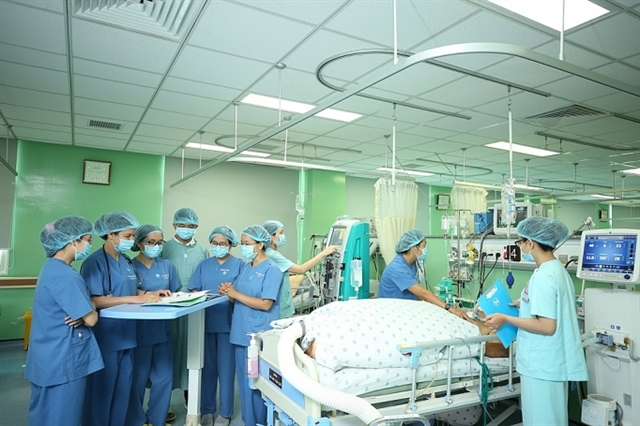 Economy
Economy

A survey conducted online by the Delegation of German Industry and Commerce in Việt Nam (AHK Việt Nam) in January revealed that sixty-six German medical and healthcare businesses said they intended to set up business in Việt Nam.

|
| The rising demand for healthcare has made Việt Nam a promising destination for domestic and foreign investors. — Photo congthuong.vn |
HÀ NỘI — German healthcare enterprises are increasingly interested in the Vietnamese market, particularly with the EU-Việt Nam Free Trade Agreement (EVFTA) expected to come into effect this summer, a survey has revealed.
A survey conducted online by the Delegation of German Industry and Commerce in Việt Nam (AHK Việt Nam) in January revealed that sixty-six per cent of German medical and healthcare businesses said they intended to set up business in Việt Nam.
The majority of German enterprises answered that they would consider using their brands and prestige as an effective way to access the Vietnamese market or co-operate with local businesses, according to the survey.
However, 54 per cent of surveyed businesses said they lacked knowledge of market entry; 37 per cent of them faced challenges in searching for local partners and personnel; 43 per cent met obstacles in contacting local authorities and 37 per cent encountered challenges in language and culture.
The survey which was released last week with 39 reputable companies in the healthcare sector aims to identify specific interests and needs of German companies while researching and entering the Vietnamese market.
Germany is one of the most important suppliers in the field of healthcare technology and medical equipment in Việt Nam. Eleven per cent of medical and healthcare equipment products imported to Việt Nam originates from Germany.
The rising demand for healthcare has made Việt Nam a promising destination for domestic and foreign investors thanks to an aging population, fast economic growth, changing lifestyles, and rising demand for health insurance, according to analysts.
The middle class was flourishing, people also increased their spending, leading to the mushrooming of private medical establishments in big cities, they said. — VNS